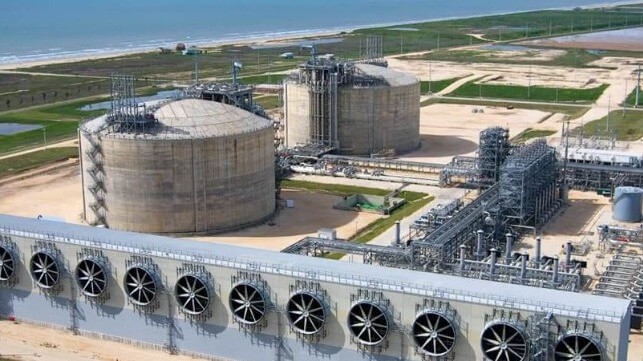Freeport LNG Plans to Enter LNG-Bunkering Business

Freeport LNG, a large liquefaction terminal in Texas, has plans to develop an LNG bunkering dock in addition to its core gas-export operations. The bunkering facility on the Intracoastal Waterway would serve smaller LNG barges, which would carry cargoes for smaller markets and deliver fuel to LNG-powered ships. A top Freeport executive confirmed the plans at a Houston conference this week, according to Bloomberg.
The news follows an earlier announcement of discussions between Freeport and U.S. energy regulators about the possibility of a bunkering operation. In 2021, Freeport owner and CEO Michael Smith told Natural Gas Intelligence that the company would add a smaller dock to serve smaller markets and marine customers.
"It’s not easy for [merchant vessels] to source the volume of LNG that they need because the big facilities really can’t take them," he said.
In addition, the LNG from Freeport's small dock could be barged out to customers in the Caribbean, where smaller cargo volumes would align with demand.
Freeport LNG is also in the early stages of developing a large-scale carbon capture and storage facility. The project will use a geological sequestration site located about half a mile away from the location of the carbon-capture plant. The short distance from the source of the carbon to the injection well is a benefit for the economics of the project, according to Freeport.

that matters most
Get the latest maritime news delivered to your inbox daily.
"As the only all-electric drive facility of its kind in the U.S., our liquefaction facility produces 90 percent less emissions than other gas turbine-driven facilities. Embarking on carbon
capture and sequestration will only further reduce the carbon intensity of our facilities," said Smith in a statement in December.
Oil and gas company Talos has been chosen as the contractor, with assistance from Storrega Geotechnologies, the firm behind the Acorn CCS project. The partners plan to move quickly once they secure regulatory approval, and Talos believes that it could be in operation by the end of 2024. The site has the potential to scale, and the operation could expand further in the future to handle CO2 from other nearby industrial plants.
